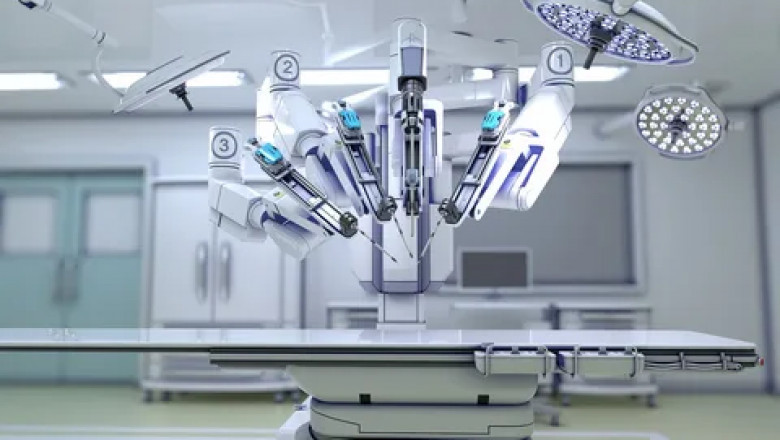views
Medical CNC (Computer Numerical Control) technology is a revolutionary advancement in the field of surgical instrument manufacturing. By using precise computer programming to control machining tools, medical CNC ensures the creation of highly accurate and durable surgical instruments. This technology enables manufacturers to produce complex designs with minimal error, meeting the stringent quality and safety requirements of the healthcare industry.
The growing demand for minimally invasive surgeries and specialized medical procedures has further emphasized the importance of precision-engineered surgical instruments. Medical CNC machining allows for the development of intricate designs, ensuring that each instrument meets the exact specifications required for complex surgical operations. With its ability to manufacture high-precision tools at scale, CNC technology has transformed the production process, leading to enhanced performance and patient outcomes.
Precision and Consistency in Surgical Instrument Manufacturing
One of the most significant benefits of medical CNC technology is its ability to produce surgical instruments with extreme precision and consistency. Traditional manufacturing methods often involve manual labor, which can lead to slight variations between instruments. CNC machining, however, eliminates this issue by automating the cutting, drilling, and shaping processes, ensuring that each instrument is identical and meets strict medical standards.
Consistency in surgical instruments is crucial for surgeons, as even the slightest deviation in size or shape can affect their performance during critical procedures. Medical CNC technology allows for tolerances as tight as a few microns, ensuring that instruments function reliably in high-risk surgical environments. By maintaining uniformity, CNC machining enhances the efficiency of surgical procedures and minimizes the risk of complications.
Advanced Material Compatibility and Durability
Medical CNC machining supports the use of advanced materials that enhance the durability and performance of surgical instruments. High-grade stainless steel, titanium, and medical-grade polymers are commonly used in CNC-machined instruments due to their biocompatibility, corrosion resistance, and strength. These materials ensure that surgical tools maintain their integrity even after repeated sterilization and use in challenging surgical environments.
Moreover, CNC machining allows for the creation of complex geometries and intricate designs that are difficult to achieve with traditional manufacturing techniques. Features such as textured grips, precision cutting edges, and ultra-fine tips can be easily incorporated into surgical instruments. This level of detail ensures that surgeons have access to ergonomic and high-performance tools, improving surgical accuracy and patient safety.
Efficiency and Cost-Effectiveness in Production
Medical CNC technology significantly enhances production efficiency while reducing overall manufacturing costs. The automation of machining processes reduces manual labor requirements and speeds up production times. This increased efficiency allows manufacturers to produce large volumes of surgical instruments with minimal waste, optimizing resource utilization and reducing production expenses.
Additionally, CNC machining enables rapid prototyping, allowing manufacturers to quickly develop and test new surgical instrument designs. This capability is crucial in the medical industry, where continuous advancements in surgical techniques require constant innovation in instrument design. By streamlining the development process, CNC technology accelerates the introduction of cutting-edge surgical tools into the market.
Future Trends and Innovations in Medical CNC Technology
The future of medical CNC technology is poised for further advancements, driven by innovations in automation, artificial intelligence, and additive manufacturing. AI-powered CNC machines are becoming increasingly capable of self-monitoring and making real-time adjustments to improve accuracy and efficiency bank intranets consulting Sydney. This integration enhances quality control and minimizes errors in surgical instrument production.
Furthermore, the combination of CNC machining with 3D printing is opening new possibilities for customized surgical tools. Surgeons can now access patient-specific instruments tailored to individual anatomical requirements, improving surgical outcomes. As medical CNC technology continues to evolve, it will further enhance the precision, reliability, and accessibility of high-quality surgical instruments, ultimately benefiting both healthcare providers and patients worldwide.














Comments
0 comment